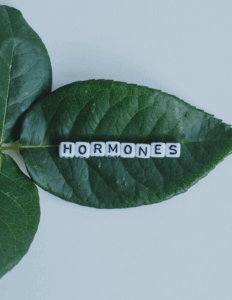What functions does our gut perform?
Our digestive system is made up of the GI tract which runs from our mouth to our anus and includes everything in between (esophagus, stomach, small intestine and large intestine), as well as the liver, pancreas, and gallbladder. The main role of the digestive system is to break down the nutrients in our food in order for our body to absorb them and use these nutrients for energy, growth and cell repair. This is just the tip of the iceberg when it comes to the amount of jobs the digestive system performs. Our nervous system and hormones must work together in order for the breakdown and absorption of nutrients to occur appropriately.
What is “normal”?
How our gut is functioning tells us a lot about our overall health. A “normal” schedule is approximately 1-3 bowel movements per day that are easy to pass (i.e. no straining), well formed (i.e. not loose or watery) and free of any blood, mucus, or undigested food (for the most part). What can disrupt a “normal” bowel routine? Lack of water, food sensitivities or intolerances, medications, pregnancy, STRESS, environmental toxins – and the list goes on and on!
What can cause disruptions to proper GI functioning?
- Food sensitivities or intolerances
Let’s start with what the difference is between a food sensitivity and a food intolerance – not to be confused with a food allergy! A food allergy is a reaction to a substance that involves the immune system – mainly the production of IgE antibodies which lead to immediate symptoms such as anaphylaxis, rash, and other severe cardiovascular, respiratory and gastrointestinal effects, with only small amounts ingested.
Food sensitivity can be used as an umbrella term to describe any type of adverse food reaction. The term food sensitivity is often used interchangeably with food intolerance, however they are slightly different. It can also be used to describe the foods that provoke the release of specific antibodies called immunoglobulin G (IgG) in response to ingestion of specific foods. It is thought that food sensitivities arise due to an imbalance in the gastrointestinal system leading to immune dysfunction that is brought about by a lack of variety in the diet. This can cause sensitization to these specific foods and continued consumption can lead to further dysfunction.
Food intolerances are (mostly) non-immunological adverse responses to food or food components that are typically due to enzyme deficiencies or non-gastrointestinal functioning. Common food intolerances are lactose, gluten, caffeine, salicylates, amines, sulfates, fructose and FODMAPs. Typical symptoms will show up slower than a food allergy reaction due to the different mechanisms involved and include: headache, migraine, fatigue, depression/anxiety, hyperactivity, recurrent mouth ulcers, aching muscles, vomiting, nausea, stomach ulcers, duodenal ulcers, diarrhea, irritable bowel syndrome, constipation, flatulence, bloating, Crohn’s disease, joint pain, rheumatoid arthritis, and edema.
No matter what the cause, whether is it is an allergy, intolerance or sensitivity, changes to the immune function of the gut open it up to dysbiosis as opportunistic bacteria do just that, take the opportunity to take hold and overgrow, leading to inflammation – which in turn leads to diarrhea/constipation, reduction in nutrient absorption – which can lead to mental health disorders like depression, anxiety, symptoms of ASD and ADHD, hair loss. You can see the effects go far.
- Pregnancy
During pregnancy and the postpartum period, our levels of estrogen and progesterone rise and fall dramatically. When hormones shift in this manner, microbiome composition is altered which increases gut vulnerability to pathogens and opportunistic bacterial overgrowth. These changes lead to altered gut function, which in turn opens us up to more mental health issues, autoimmune conditions, skin disorders……the list can go on.
- Antibiotics and other medications
Many people have heard that antibiotics can disrupt your gut microbiome as the job of antibiotics is to kill bacteria. While they kill the “bad” bacteria, or opportunistic bacteria, they also kill the “good” or normal bacterial flora and disrupt the balance. In addition, drugs such as Metformin (a diabetes drug), PPI’s (proton pump inhibitors used for acid reflux/GERD), SSRI’s (used for depression) and laxatives can all disrupt the normal bacterial flora and open us up to gut dysfunction and further health issues.
- Environmental toxins
We are exposed to environmental toxins every day – whether it is from our water, our soil, the air – it is impossible to get away from unless we are going to live completely off the grid in the wilderness and grow our own food. For most, that is not a feasible solution! While we already knew that environmental toxins can cause brain, liver and kidney toxicity, however we are learning these toxins can also disrupt the gut microbiome.
- Stress
Stress, another thing that most of us cannot fully get away from, however, its impact on our gut health is significant. We know that stress can alter our gastrointestinal mucosa (the protective lining of our gastrointestinal tract), making it more permeable – which in turn allows for particles to escape our digestive system. When these particles escape, this can lead to antibody production against these foods or food components. What does that look like in terms of symptoms? You can start to notice that foods that you are used to eating on a regular basis have started to bother you – perhaps they are causing abdominal pain, bloating, brain fog, rashes – and this is occurring with more and more food. In addition, stress can increase the amount of inflammatory cytokines released which initiate an inflammatory response. Lastly, stress also alters our microbiome – which by now we know can lead to many health problems. The issue with stress is that these changes to our gut mucosa and microbiome can then alter the way we in turn respond to stress, and this continues until we break that cycle – which is why it is key to address both microbiome disruption and sources of stress.
How can GI dysfunction show up?
- Mental health
By now, many will have heard about the gut-brain connection, but what exactly does this mean? Our gut and brain develop from the same tissue during fetal development – one becomes our central nervous system which includes our brain and spinal cord and the other develops into our enteric nervous system and these nervous systems are connected by our vagus nerve. Our enteric nervous system, also known as our “gut brain” contains more nerve cells than our entire spinal cord! This connection between our central and enteric nervous systems means that they act on each other. Our emotions, stress and experiences influence our gut microbiome, and in turn our gut microbes release signals to our brain (including neurotransmitters such as serotonin and dopamine) that influence our emotions, our memory and behavior.
- Skin disorders
The skin is the largest organ in the human body. If there is any dysfunction in the body, there is a high likelihood that this will show up on the skin in some shape or form – whether it is in the form of acne, eczema, psoriasis and numerous other skin disorders. We now know that lifestyle factors such as diet and stress play a large role in determining how our immune system responds to changes in our microbiome. Research shows that a SAD (Standard American Diet) with a lack of diversity leads to a less diverse microbiome. Whether there is a lack of diversity or dysbiosis, this can alter the body’s immune response, leading to the development of skin diseases such as acne, psoriasis, atopic dermatitis, dandruff and even skin cancer.
- Infertility
When we consider the menstrual cycle, we don’t often link it to our gut health. However, month after month women suffer from debilitating PMS symptoms – whether that be cramps, extreme breast tenderness, emotional lability, migraines and back pain. Enter the estrobolome! The estrobolome is one “department” of our microbiome made up of bacteria with special genes that metabolize estrogen and maintain steady levels. When our microbiome is disrupted for whatever reason, this will throw off our estrogen metabolism. When this occurs, our estrogen levels increase throwing off the delicate balance of our hormones which can lead to many different fertility disrupting health problems such as endometriosis, fibroids, PCOS.
What can we do?
Step 1 – Find a practitioner who will listen to you and take your symptoms seriously
Step 2 – Figure out if your gastrointestinal functioning is “normal”
Step 2 – Assess for gut disruptors such as food sensitivities, medications, pathogens using research backed testing
Step 3 – Treat! This can involve a combination of antimicrobials, binders, digestive enzymes, probiotics, transfer factors, stress reducing practices and many other diet and lifestyle changes depending on your specific needs.
Get your free consultation with Dr. Masuda to learn more about how you can heal your gut today.








